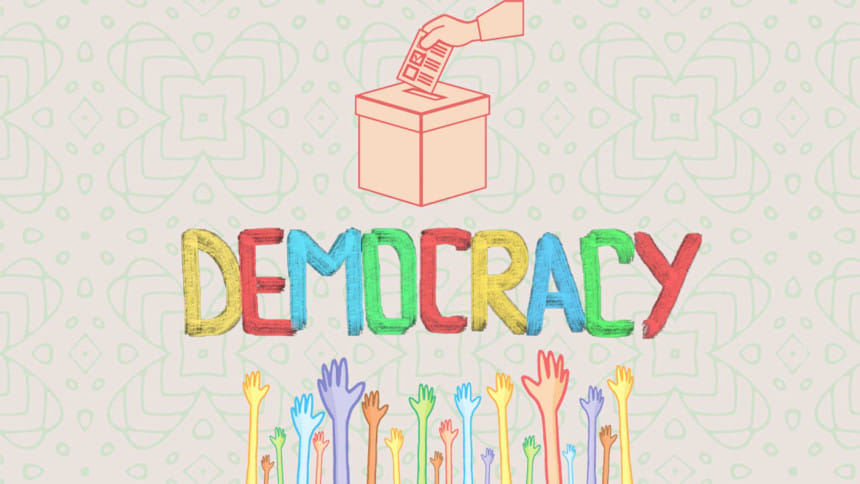How the EC can conduct credible elections

The 13th Election Commission (EC) of Bangladesh, led by Chief Election Commissioner (CEC) Kazi Habibul Awal, assumed office at a time when election credibility in Bangladesh is under question. The 2014 parliamentary election was termed "failed" by the Perceptions of Electoral Integrity (PEI)—evaluated by the Electoral Integrated Project—while the 2018 election was held in a situation where "the degree of trust over the 'rules of the game' remains low." Compared to its last two predecessors, the Habibul Awal commission faces enormous challenges.
The first challenge before the new EC is restoring the trust of all electoral stakeholders in the electoral process. In countries such as Norway, Denmark and Germany, there is basically no electoral authority—a department under a ministry conducts the elections under the supervision of the minister concerned. But elections in those countries are ranked at the top of PEI, and one of the main reasons for that is trust. However, it is tough to build or restore trust in the electoral process in a country like Bangladesh, where there are high levels of political polarisation.
The second challenge would be bringing people back to the elections. Since the 2018 polls, a voter apathy has been noticed: voter turnout was 40.31 percent in the upazila elections in 2019, 65 percent in the municipal elections in 2020-21, and 71.92 percent in the union parishad elections in 2021-22, which were lower than those at the elections held in 2014-2016. A democracy cannot function properly without its citizens' involvement. Elections, which are at the centre of any democratic system, engage the electorate, enforce accountability, and promote representation. How people feel about elections is also consequential. When people have confidence in elections, it grants legitimacy to the election outcome and the political system.
The third challenge would be to involve all the political parties, including the BNP, in the electoral process. They have not only boycotted the EC appointment process, but they have also continuously criticised the president's dialogue with political parties and enactment of the law on the formation of a search committee to appoint the EC. They reiterated that they would not participate in the 2023 parliamentary election under the Awami League government, adding that their "main worry is over the election-time government." The BNP may continue its stance until there is a political consensus.
The fourth challenge is transforming the unopposed elections into contested ones. Unopposed elections are not illegal in Bangladesh. But such elections are only accepted when someone is elected uncontested per the will of the people.
The fifth challenge is to ensure a level playing field for all parties and candidates. In a report on the 2018 polls, the UK House of Commons stated that "the 'playing field' remains far from level. Official harassment of political opponents remains intense. The Awami League enjoys the advantages of incumbency." This is mostly true in most elections held under political and authoritarian governments in Bangladesh since 1973. Therefore, addressing this will be quite challenging for the EC.
The sixth challenge is to make the commission a cohesive body. Although the constitution authorises the CEC to chair the commission meeting, and exclusively empowers him to defer the date of elections due to reasons that are acts of God, all the decisions should be made unanimously. The Supreme Court of Bangladesh said unequivocally that "for exercising and performing any powers and functions under this Order, he (the CEC) must get authorisation from the commission itself, otherwise his action would be coram non judice and without jurisdiction." Due to a lack of consensus, a rift in the immediate past commission not only hampered its cohesion, but it also eroded citizen trust in the electoral process.
Now, how can the EC overcome these challenges? Here are a few suggestions:
i) Officially, the EC is not answerable to the president, prime minister, speaker of parliament, or the judiciary, which means they are accountable to the citizens. They could develop an accountability mechanism that may include various citizen engagement strategies in every step of the electoral process. This could include regular issue-based reporting, rigorous public scrutiny, and keeping the electoral stakeholders and the public periodically updated on their strategies and policies, intended outcomes, performance and the financial resources. Accountability to the citizens and its stakeholders would promote transparency and good governance, and positively influence the public's perception of the commission's professionalism and impartiality.
ii) The EC could prepare a two-year strategic plan as well as an action plan targeting successful outcomes from credible elections, to be achieved by organising local body elections scheduled for 2022-24, and of course the 12th parliamentary election next year. With intensive interaction with electoral stakeholders, the commission should fix its two-year vision and mission, analysing what its current position is and where it wants to be in two years, identifying its focus, strategies, and roadblocks to conducting credible elections that may arise along the way.
iii) The commission could start organising "model elections," which could be held in selected unions or upazilas or municipalities. To do that, the commission could revise the electoral code of conduct, considering the current context and the challenges faced in recent years, deploy security forces from other districts, provide comprehensive trainings to all temporary poll officials, allow stationary election observers who can remain at any polling station from poll opening till the announcement of results.
iv) It should set up a high-level effective monitoring cell led by a commissioner, which must register all complaints coming from anyone, even the media, and address those quickly through investigation, leaving no complaint untouched. Pertinent to gazette notification of election results, if there is any minor complaint, the commission should withhold such notification until it completes relevant inquiry.
Nowhere in the world can electoral authorities conduct credible elections alone. In general, the role of an election commission is mainly to make policy decisions along with strong monitoring for effective enforcement of the decisions. All electoral stakeholders—the government, political parties, candidates, voters, the media, CSOs and international communities—are required to support the electoral authorities. However, the Election Commission of Bangladesh possesses some extraordinary powers, including cancelling candidature, suspending polls at any time, supervising, directing and controlling the activities of returning officers, and withdrawing any officer from poll duty. I want to believe that, by addressing the aforementioned challenges and exercising its powers, the new commission will be able to conduct credible elections in the country.
Dr Md Abdul Alim is an international election specialist and has worked with the Shamsul Huda-led Election Commission.

 For all latest news, follow The Daily Star's Google News channel.
For all latest news, follow The Daily Star's Google News channel. 



Comments